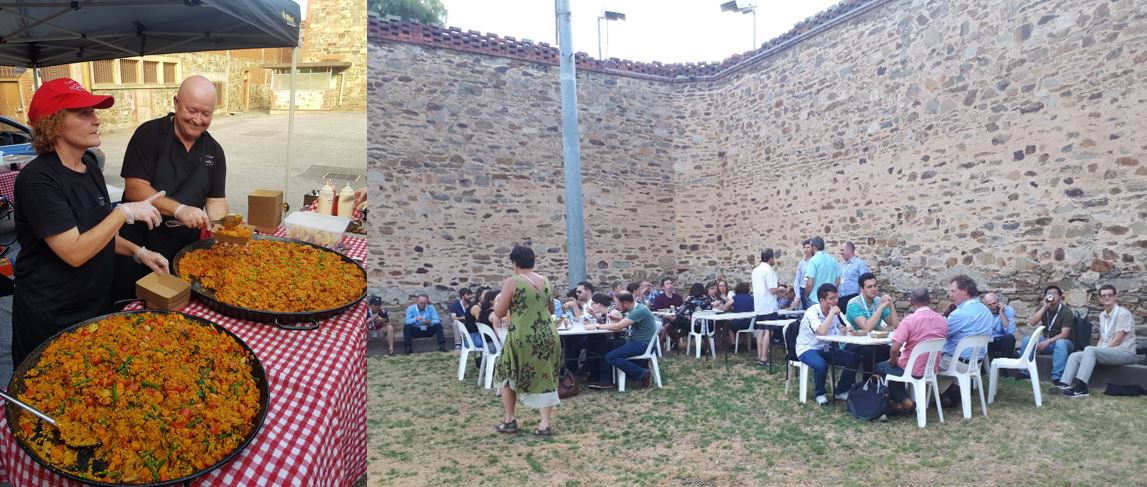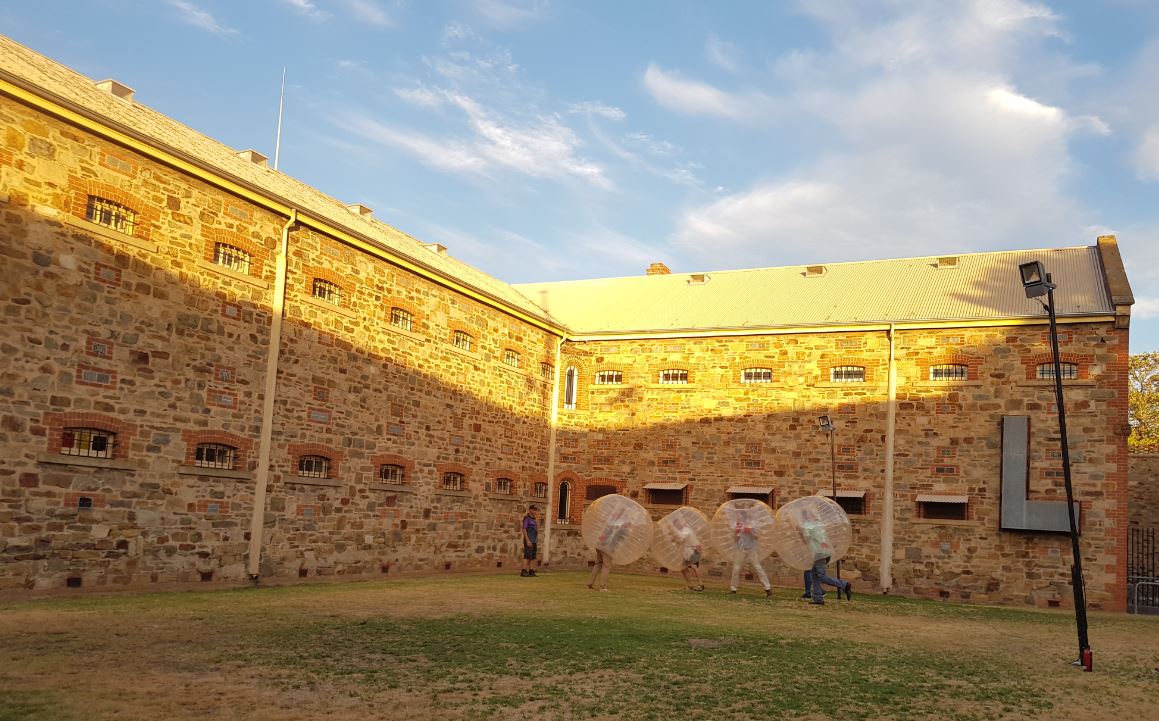Blog post prepared by Jesmin Ara Rupa, PhD student, Centre for Global Food and Resources
Day 2 of the AARES conference 2018 in a very warm Adelaide. Read about the day’s events below.
The morning started with two Mini-Symposia – one on climate change impacts and migration and the other one on designing conservation auctions for low participation rates and landholder uncertainty convened by Ilan Noy and John Rolfe, respectively. At the same time, a number of selected paper sessions on Agriculture, Beverage economics, Development, Energy, Health, Landscapes and a session on Theory took place.
GFAR staff and PhD students were busy presenting their research outcomes both in the morning and in the afternoon sessions.
Dr Adam Loch chaired the selected paper session “Agriculture”. This session showcased theoretical and empirical research on farm performance, technical efficiency and redefining water in agriculture.
In the same session, GFAR researcher Dr David Adamson and Dr Adam Loch jointly presented their research “Is it time to redefine water?”. In this presentation, Dr Adam Loch highlighted the importance of the five stages of water resource development: Exploration, Expansion, Maturity, Contraction and Inequality to redefine water. Following this, Dr David Adamson gave a theoretical explanation about understanding how water is used.
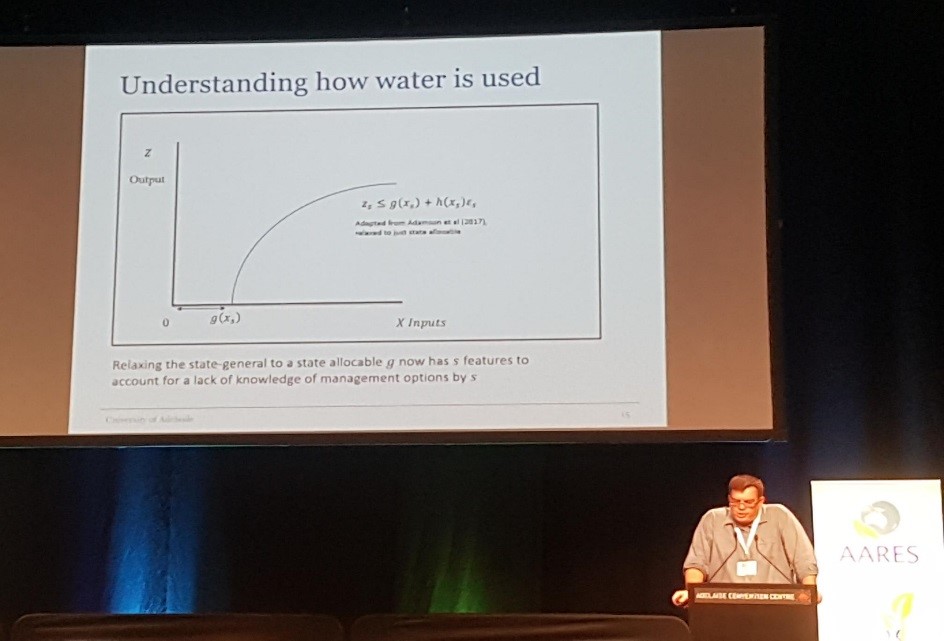
 In the morning session on “Development”, GFAR PhD student Phassara Khamthara presented her research on “Horticultural development and its impact on household education investment in Indonesia”. Her research findings from instrumental variable regression indicate a positive impact of household having horticultural crop as the main crop on education spending. More interestingly, the results show no effects on hours spent in school and grade repetition even though horticultural farming is labour intensive.
In the morning session on “Development”, GFAR PhD student Phassara Khamthara presented her research on “Horticultural development and its impact on household education investment in Indonesia”. Her research findings from instrumental variable regression indicate a positive impact of household having horticultural crop as the main crop on education spending. More interestingly, the results show no effects on hours spent in school and grade repetition even though horticultural farming is labour intensive.
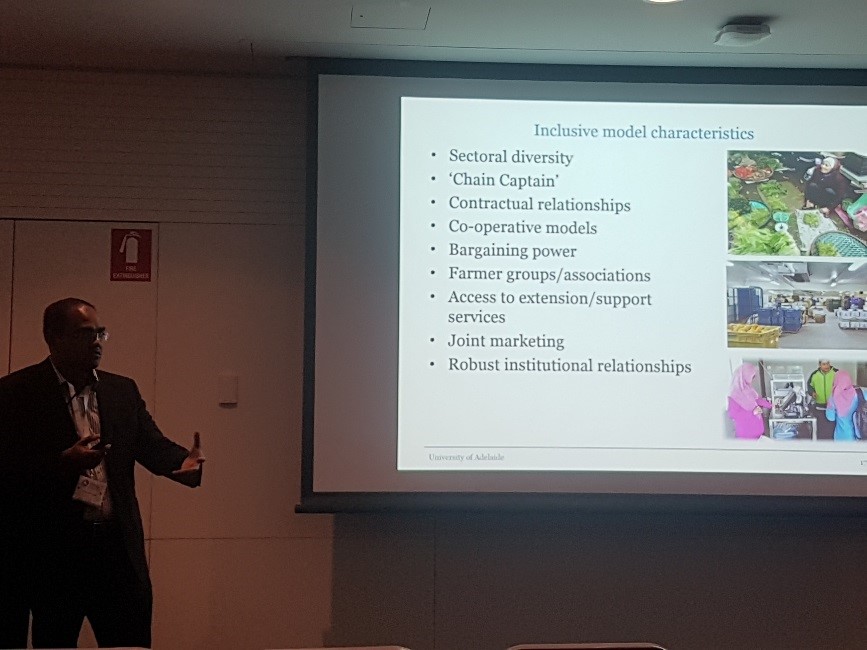 After the morning tea, GFAR work on factors contributing to smallholder inclusive agricultural value chains in South East Asia was presented by Research Associate, Rohan Yargop. The study shows that presence of a “Chain Captain” is important to drive inclusive value chains for small farmers.
After the morning tea, GFAR work on factors contributing to smallholder inclusive agricultural value chains in South East Asia was presented by Research Associate, Rohan Yargop. The study shows that presence of a “Chain Captain” is important to drive inclusive value chains for small farmers.
The key take home message highlighted the important role of formal and informal farmers’ associations and collaboration of multinationals with small farmers.
In the well-attended “Theory” session, Dr Daniel Gregg presented his paper titled “Cognition, impatience and Climate change preferences: Impatience as irrationality versus impatience as preference”. His research was motivated by the following question “Do people have a deep and persistent preference for sooner outcomes over later outcomes unless they are suitably compensated OR are their choices driven primarily by the difficulty of choices in dynamic settings?”. Dr Gregg further mentioned that in the former case there is little in the way of policy formulation which can be done to improve savings rates or consumptive behaviours. On the other hand, the latter term “impatience” suggests that these types of choices are driven by irrationality which means that policy interventions can be justified on an efficiency basis. His interesting experiments attracted quite a few questions from the audience.
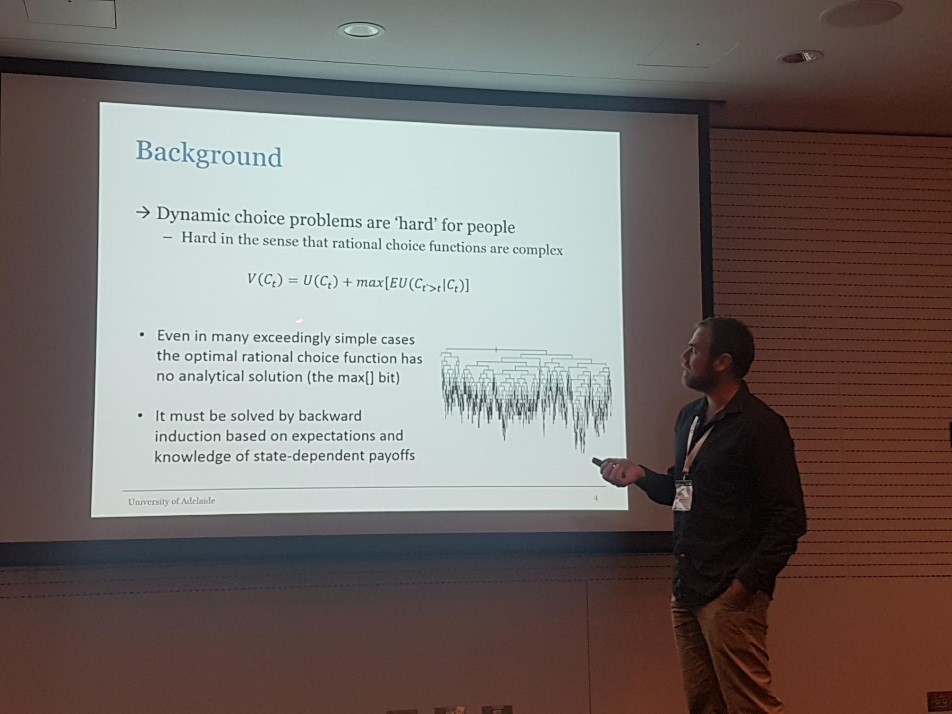
After lunch, Professor Randy Stringer chaired an invited speaker session on the theme “Global Food Value Chains: Opportunities and Challenges for Australasia”. Professor Ed McLaughlin delivered an excellent talk on “Disruptions in the global food retail landscape”. He showed how conflicts between retail giants to capture markets is putting suppliers under huge pressure in the US retail markets and its implications on the global food system. He indicated that in the long run, consumers win due to low price, more choice and convenience. However, there will be pressure on industry to build scale, invest in technology, costs cut and differentiate. His mentioned that suppliers should simplify business and supply-chain innovation is needed.
The second speaker Professor Tava Oslen focused on “Modelling Contracts and Incentives in Agricultural Cooperative Supply Chains”. In her talk Professor Tava addressed how an agricultural cooperative coordinate operational and financial decisions should when equity is in proportion to patronage.
Lastly, GFAR adjunct Professor Tom Reardon delivered his talk on “Rapid Transformation of the Mango Value chain in Indonesia”. This is a decade long research journey supported by ACIAR AUSTRALIA on understanding the dynamic mango value chain in Indonesia through rural and urban consumption and mango production studies.
The last session, Distinguished Fellow’s Address ended with the talk delivered by Professor Ana María Ibáñez on “The Impact of Internal Conflict on Agricultural production: A focus on Small Farmers”.
A very well spent day at AARES 2018 Annual Conference indeed as many new opportunities opened for researchers to think and re-think on global food system and resources.
The day ended with a networking event at the Adelaide Goal, where paella, laser tag, bumper balls and ghost tours were on offer.
